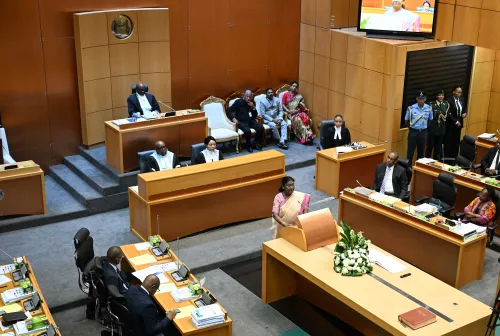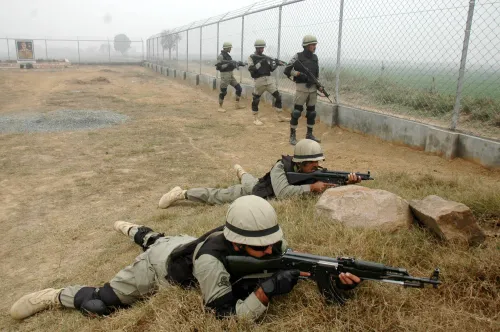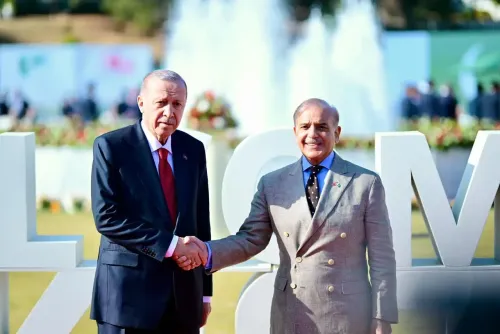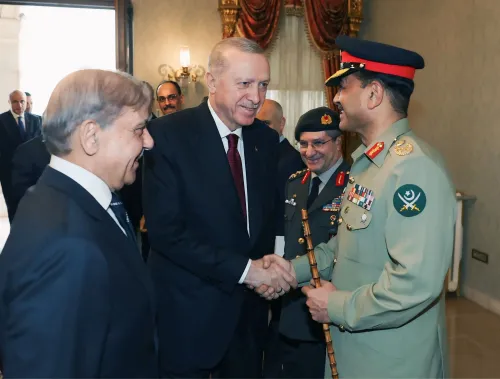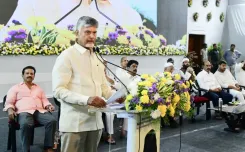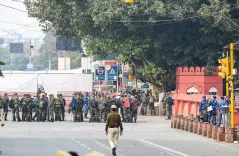Will Afghanistan Gain Recognition from Central Asian Countries After Kremlin's Support?
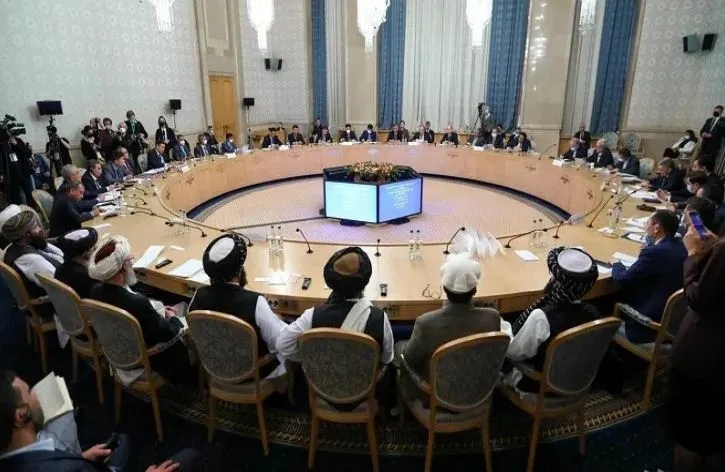
Synopsis
Key Takeaways
- Russia has recognized the Taliban government, a first in international relations.
- Trade agreements are expected to flourish between Afghanistan and neighboring countries.
- Central Asian nations may reconsider their diplomatic stances.
- Infrastructure development projects, including the Trans-Afghan railway, are underway.
- Security challenges persist, particularly for Tajikistan.
New Delhi: Earlier this month, Russia became the inaugural nation to acknowledge the Islamic Emirate of Afghanistan (IEA) and recognize the de facto Taliban administration in Kabul as a legitimate entity.
As of now, no other nation has granted recognition to the Taliban regime, which took control in August 2021 following the U.S. withdrawal. On April 17 this year, Russia removed its prohibition on the Taliban, facilitating a normalization of ties between the two nations. Historically, Russia had expressed criticism towards the U.S.-led coalition in Afghanistan but did not fully oppose its actions. The pro-U.S. transitional government led by Hamid Karzai also managed to establish operational relations with Russia. After 2004, relations between Russia and Afghanistan soured due to the 'Orange Revolution' in Ukraine. In 2003, Russia had banned the Taliban, but the dynamics shifted in 2015, initiating regular discussions in both Kabul and Moscow starting in 2016, albeit behind closed doors.
On July 3, Afghanistan's newly appointed Ambassador to Moscow, Gul Hassan Hassan, presented copies of his credentials to Russian Deputy Foreign Minister Andrey Rudenko. Through posts on X, Russian Ambassador Dmitry A. Zhirnov officially announced the recognition of the IEA by the Russian Federation. Notably, during Afghanistan's severe crisis in August 2021, Russia adopted a pragmatic approach by keeping its Embassy operational in Kabul and recognizing Taliban diplomats.
Meanwhile, the Taliban's Foreign Minister Amir Khan Muttaqi expressed gratitude to Russia for this decision, stating that Moscow's 'courageous and historic step' will serve as a model for others, enabling both nations to enter into trade and various agreements. Zabihullah Mujahid, the Chief Spokesperson of the Taliban government, noted that Afghanistan's diplomatic ties with Russia would be dependable, as Russia also seeks regional connectivity and trade, recognizing Afghanistan's potential in this sphere.
Russia's formal acknowledgment of the Afghan regime will undoubtedly provide some international legitimacy to the Taliban leadership. Russia views Afghanistan as a vital transit corridor and a promising export market. By 2025, bilateral trade between Russia and Afghanistan is projected to reach USD $3 billion, with Russia increasing its exports of wheat, oil, and gas to energy-dependent Afghanistan.
Furthermore, Russia's diplomatic recognition of Afghanistan will strengthen the Central Asian Republics (CARs), which have their own strategies for balancing security risks and fostering greater economic collaboration.
Uzbekistan was the first CAR to host a Taliban delegation in Termez in September 2021, led by Acting Deputy Prime Minister Mawlawi Abdul Salam Hanafi, who is of Uzbek descent. Minister Muttaqi visited Samarkand in April 2023 for the fourth meeting of the neighboring foreign ministers of Afghanistan. The foreign ministers of CARs committed to enhancing cooperation in security, economic growth, and connectivity.
Uzbekistan has played a crucial role in Afghanistan's infrastructure development, signing a trilateral agreement with Afghanistan and Pakistan in July 2023 to construct the 573 km Trans-Afghan railway connecting Mazar-e-Sharif to deep-sea ports in Pakistan and Iran's Chabahar port. The project's estimated cost is USD $4.6 billion, as per the Uzbek Transport Design and Research Institute.
Mullah Abdul Ghani Baradar, the Deputy Prime Minister for Economic Affairs, led a high-ranking Taliban delegation to Uzbekistan in February this year. Baradar's office reiterated the group's policy of neutrality in foreign relations. 'Our foreign policy towards neighboring and regional countries is based on neutrality and non-interference, and we expect the same from our neighbors and the international community,' he stated, assuring regional countries that Afghan territory would not be a security threat.
Additionally, Uzbekistan is set to complete the construction of the Khalqlaar Bazaar border market, offering a 15-day visa-free travel option for Afghan citizens. In 2024, bilateral trade between Uzbekistan and Afghanistan reached USD $1.1 billion. Notably, Uzbekistan shares a 144 km long border with Afghanistan, the shortest of its external borders.
Turkmenistan is another essential player, supplying oil and gas to Afghanistan. Turkmen investments in Afghanistan include the Turkmenistan-Afghanistan-Pakistan-India (TAPI) project, which aims to deliver 33 bcm of natural gas annually from the Galkynysh gas field in southeastern Turkmenistan. Officials from both sides, including Afghan Prime Minister Hassan Akhund, witnessed the completion of the TAPI project on the Turkmen side of the border last September. Work has commenced on the Afghan side as well. The TAPI project is a USD $10 billion gas pipeline traversing South Asia. In May 2024, 13 commercial contracts worth USD $200 million were signed in Kabul. A USD $7 million agreement was reached in September 2024 for three railway projects connecting Turkmenistan and Afghanistan, including the Turkmenistan-Afghanistan-Tajikistan (TAT) railway and the Aqina-Andkhoy extension.
Taliban actions have created a security dilemma for Tajikistan, as radical Islamist factions operate along the Tajik-Afghan border, which spans 1,357 km. The Taliban regime has faced accusations of providing refuge to militants, as Tajik leadership has struggled to convince Kabul to form an inclusive government that represents various ethnic groups, including Tajiks, Hazaras, and Uzbeks. In Moscow's strategic considerations, the Dushanbe-Kabul relationship is of urgent concern, and the Kremlin recognizes the complexities involved.
From a geopolitical standpoint, and considering Afghanistan's strategic importance in future energy and infrastructure initiatives, Russia's increased presence in its nearby region will enable it to adopt a more proactive approach. Furthermore, Russia is poised to fill the void left by the U.S. withdrawal in August 2021, which was celebrated in Afghanistan. In July 2024, Russian President Vladimir Putin remarked that the Taliban had become a vital partner in Russia's counter-terrorism endeavors.
Afghanistan is actively seeking recognition from as many nations as possible to establish itself as a trustworthy partner for collaboration. Following Russia's recognition of the IEA, it is anticipated that the CARs will follow suit.
(The writer is an expert on South Asia and Eurasia. He was previously associated with the Manohar Parrikar Institute for Defence Studies and Analyses. The views expressed are personal)

